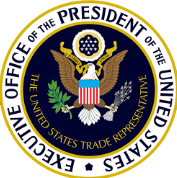Government/Policy

August 17, 2023
USTR Applauds WTO Report on Section 232 Tariffs
Written by Ethan Bernard
The office of the US Trade Representative (USTR) endorsed the World Trade Organization’s (WTO) panel report regarding the Section 232 duties against China on steel and aluminum. The report recognized the duties as “security measures,” rejecting China’s arguments against them.
“The United States is pleased with the WTO panel report released today, recognizing that the US Section 232 actions on steel and aluminum are security measures, and that the People’s Republic of China illegally retaliated with sham ‘safeguard tariffs,’” USTR spokesperson Sam Michel said in a press release on Wednesday.
Michel said that China’s decision to pursue this dispute “highlights its hypocrisy by both suing the United States in the WTO and at the same time unilaterally retaliating with tariffs.”
“The panel rightly rejected China’s argument that the US Section 232 actions are safeguard measures that may be ‘rebalanced’ under WTO rules,” Michel added.
Further, USTR believes China’s use of the WTO dispute settlement system to challenge the US Section 232 national security actions “has caused grave systemic damage to the WTO.”
“The WTO does not have the authority to second-guess a WTO member’s response to threats to its security, and WTO reform must ensure that issues of national security cannot be reviewed in WTO dispute settlement,” Michel’s statement said.







